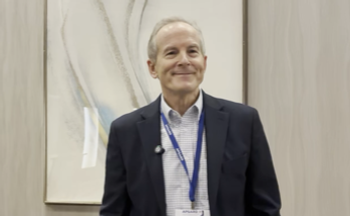
Expert Panel Ponders What It Takes To Be an Ethical Psychiatrist
What’s a psychiatrist to do? An APA ethics panel at the Annual Meeting considered various dilemmas, including possible conflicts between physicians’ obligations to individual patients and their obligation to promote the public good.
CONFERENCE REPORTER
“Ethical dilemmas arise when there are multiple ethical responsibilities that stand in tension with each other,” Charles Dike, FRCPsych, MBChB, MPH, told the attendees of the American Psychiatric Association (APA) Annual Meeting.
At a panel on “Ethical Dilemmas in Psychiatric Practice,” one dilemma stood out: the possible conflict between psychiatrists’ duties to their individual patients and their duties to promote the good of the public as a whole.
This conflict has become particularly pressing this past year due to the global pandemic, and the panelists considered the problem from several angles as they answered previously submitted questions.
One question concerned confidentiality: What should be done when a patient reports her parents are sending another child to school despite the child’s positive SARS-COV-2 virus results?
Daniel J. Anzia, MD, a member of the expert panel, explained “the participation in public health endeavors is a long-standing, recognized potential exception to the obligations of psychiatrists, and all physicians, maintaining confidentiality.” Past department chair for psychiatry at Advocate Lutheran General Hospital in Park Ridge, Illinois, Anzia said ideally the patient (who was no longer a minor) would make the report to the school, and then inform the family that public health officials might be contacting them. But, he added, if the patient refused, “it is permissible for the psychiatrist to make such a report.”
Another question asked what psychiatrists should do if patients insisted on being seen in person, even at the height of the pandemic. Panel member, Tia Patricia Powell, MD, Director of the
Powell noted that many psychiatrists have extended their own knowledge of telehealth, discharging their obligation to offer care in person by working with patients to make telehealth possible. If the patient refuses telehealth, protective gear, and vaccination, “it could be legitimate for a psychiatrist to say, ‘I’m not at this time able to continue working with you.’”
Along the lines of vaccinations, are psychiatrists obligated to get an available vaccine for SARS-COV-2? Although “a psychiatrist has a right to refuse the vaccine, the psychiatrist should consider their wider obligations of such a decision, including an unspoken statement—to the psychiatrist’s colleagues and patients—that the psychiatrist does not trust the vaccine,” said Dike, associate professor of psychiatry at Yale School of Medicine and associate program director of its
What are the obligations of a psychiatrist to a new patient who has yet to be seen? The panel was presented with a situation in which a patient fills in a reports suicidal thoughts on a new pre-visit questionnaire, and then does not come to the appointment or answer calls. Should the psychiatrist send someone to check on the patient?
Panelist Rebecca Brendel, MD, JD, detected a potential conflict between the psychiatrist’s duty to the individual patient and the public at large. “We’d hate to say we’re not going to screen patients for suicidality because it’s too hard to figure out what to do with the information,” said Brendel, assistant professor of psychiatry at Harvard Medical School and director of its Master in Bioethics program. However, she noted the need for a follow-up mechanism that does not overstep the bounds of a nascent doctor-patient relationship by violating the prospective patient’s rights to privacy and confidentiality.
One of the more controversial topics over the past few years has been what psychiatrists—or the APA as a whole—should say about the national psyche and potentially dangerous political leaders or movements. Brendel quickly reaffirmed the
Striking a balance between obligations to patients and society during a plague year might seem like an exceptional circumstance, but Philip Candilis, MD, reminded attendees that medical ethicists have previously faced similar situations. In fact, Candilis, professor of psychiatry and behavioral sciences at George Washington University School of Medicine and Health, noted that the field of medical ethics arguably began during a deadly outbreak. “When Thomas Percival wrote his Medical Ethics, it was in response to the typhus epidemic in Manchester [UK],” Candilis said. During the plague, doctors fled the city, leaving many patients without care. In response the government demanded new professional guidance and ethical standards for physicians,
Several decades later, the American Medical Association adopted Percival’s standards. The ethical dilemmas with which he grappled remain relevant today, and they will likely come up again. “How do you protect yourself as a doctor,” asked Candilis, “How do you protect your family, and how do you work for the public good at the same time? This is a difficult, difficult balance to strike.”
The panel reminded attendees that ethics resources and official APA opinions could be find on the APA’s Ethics webpage
Newsletter
Receive trusted psychiatric news, expert analysis, and clinical insights — subscribe today to support your practice and your patients.







